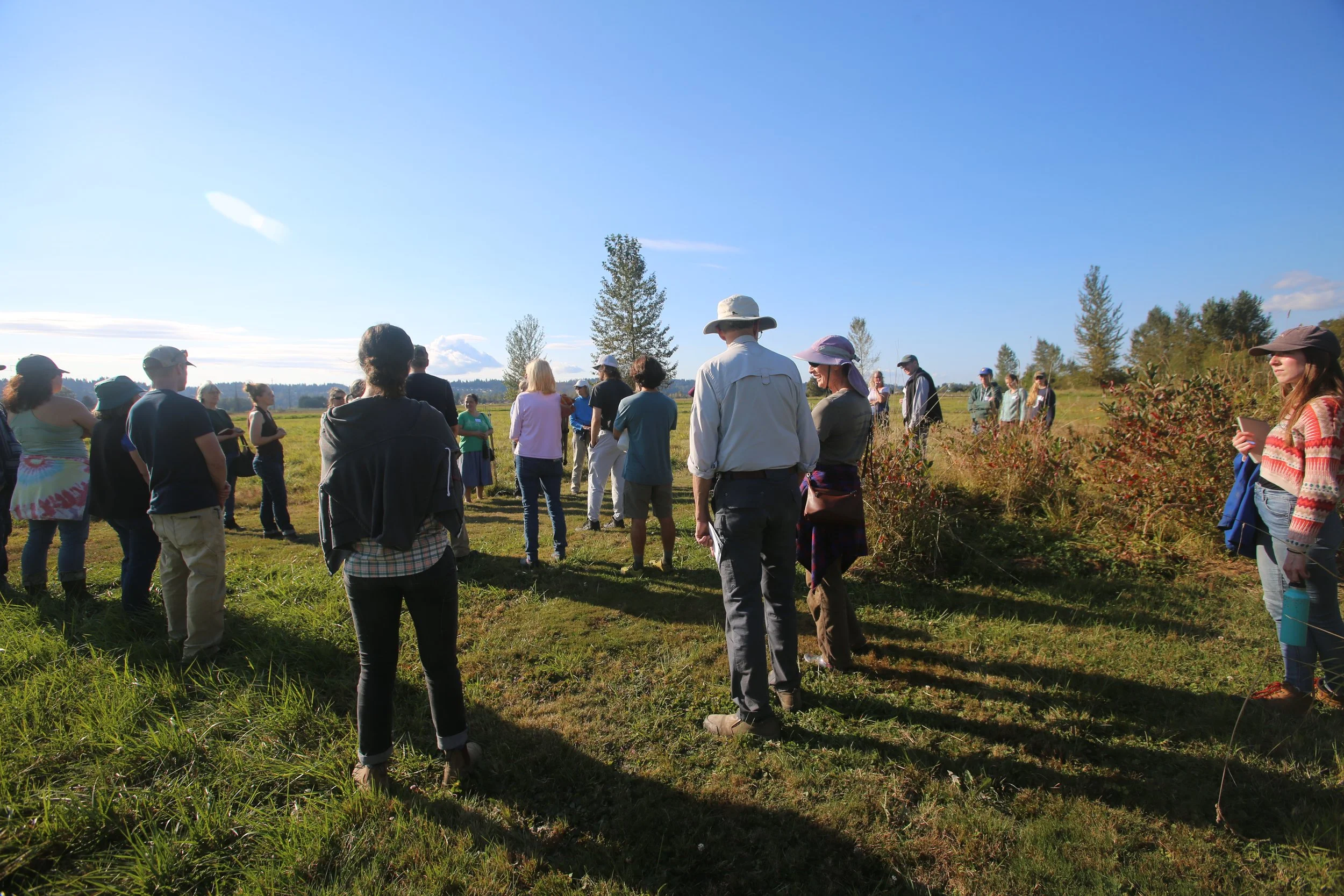Finding a balance between salmon recovery and agricultural production has not always been possible – we must walk in the shoes of another to understand their hopes and fears.
Welcome to the practical side of the Sustainable Lands Strategy of Snohomish County (SLS). On this website, you’ll find the upcoming meetings, previous work and stories, as well as a little history. If you would like to keep up with our the happenings of the Sustainable Lands Strategy of Snohomish County, please sign up for emails on the Subscribe page.
Participants of the Agricultural Resilience Farm Tour in September 2022 in Snohomish, WA
news and updates
“Everyone has a seat at the SLS table.”
- Terry Williams, Tulalip Tribes
meetings and Events
New Website
On the new site you will find a new short video that you can share with others to explain why SLS was created, listen to stories told by SLS participants, interact with a map of SLS-supported projects, and read about the history of the landscape. Visit FarmFishFlood.org.
Highlighted projects
While the Sustainable Lands Strategy (SLS) does not sponsor projects, committee members and partners use the support of the forum to get funding for projects and bring interested parties together to complete them. Below are examples of some of the most recent projects SLS has had the honor of working with.
Photo by Ben Curley
Tales of Two Rivers
Twelve participants gathered virtually to learn how to craft a story and create their own videos. The resulting stories range from 2-5 minutes that encapsulate what it means to be a farmer, watch the decline of native fish, and live in a floodplain.
Photo by Julie Allen, Justamare Farm
Agricultural resilience plan
To be resilient means to withstand changes or difficulties. This is something farmers are accustomed to, but climate change brings new challenges as we experience increased temperatures, drought, and high-intensity rainfall events.
Photo by Scott Haydon
Reach Scale Planning
The purpose of the reach-scale planning effort is to identify a coordinated set of multi-benefit projects that will, when completed, improve natural functions within a river reach while generating a net gain for the farm, fish, and flood management interests.
Lifeblood: Connected by Water, United by Hope
Short documentary produced by Washington Department of Fish and Wildlife’s Estuary and Salmon Restoration Program and directed and filmed by CaravanLab.
The environmental problems we face today are rooted in the context of our histories. Lifeblood shows how groups historically at odds with one another are finding ways to come together for a better future in the Pacific Northwest. The film explores how four groups of people — fishermen, indigenous tribes, farmers, and scientists — are moving beyond past mistrust to forge a new path for healthy ecosystems that works for us all.
Open to the public
Meetings
Who is involved?
Meet Steering committee members



















